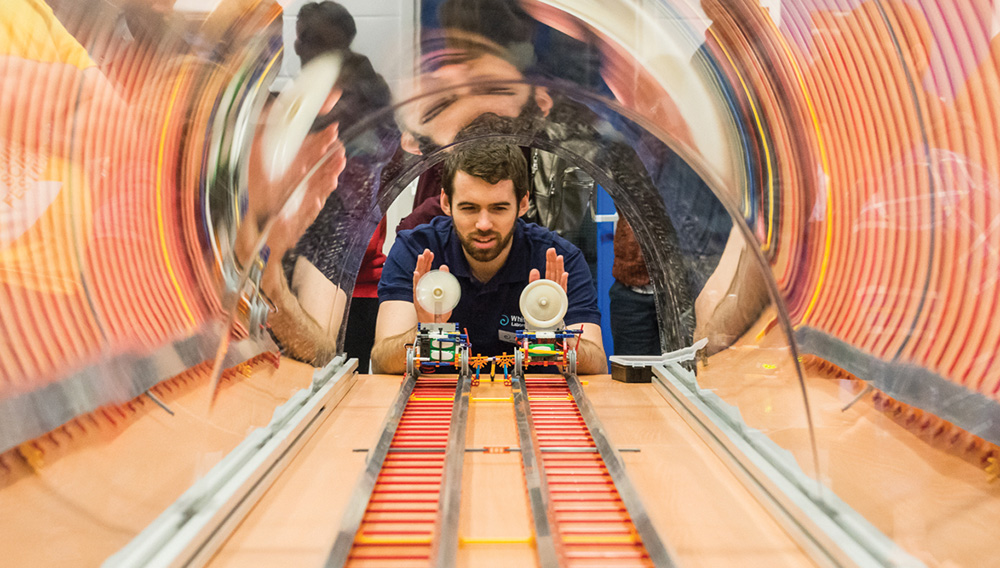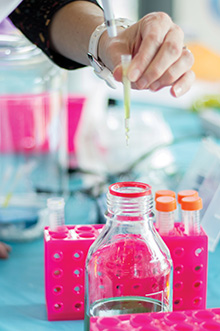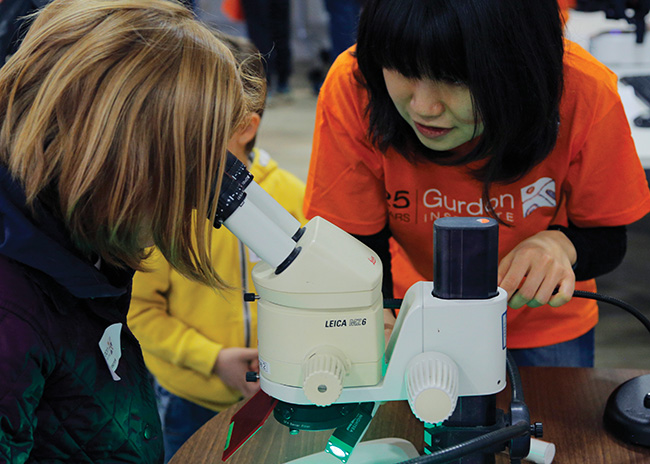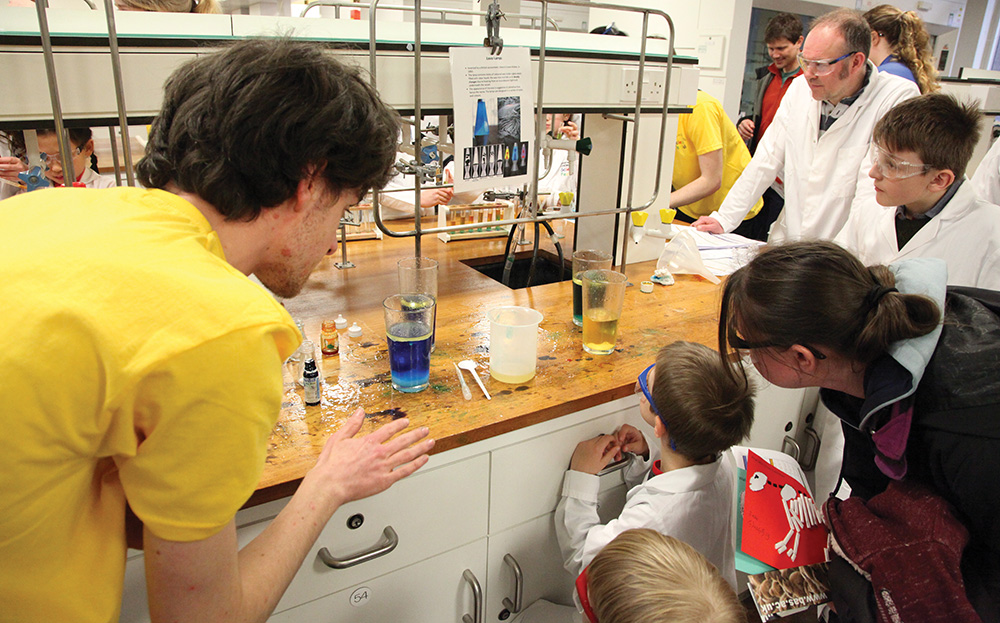Cambridge Science Festival arrives with hundreds of talks, exhibitions and events
A world leader in science, technology and medicine, Cambridge boasts a reputation on a global scale as a hotbed of innovation and pioneering ideas. This month the city gets a chance to show off its considerable brains as the feted Cambridge Science Festival returns for its 24th outing, presenting a feast of fascinating events from 12 to 25 March. From talks and performances to exhibitions and hands-on activities, there are more than 320 events in total, taking place at venues across the city and mostly free to attend.
In uncertain times, the 2018 festival resolves to make sense of the world, seeking answers to the big questions about life and the universe. “The aim of the Festival is to spark scientific debate and inspire young people to take an interest in science, technology, engineering, maths and medicine – we trust the programme this year will do just that,” says Dr Lucinda Spokes, coordinator of the Cambridge Science Festival. “Through the huge range of events, we are addressing some of the most important questions facing us personally and as a society, including our health, impact on the world around us, and what the future might hold. We very much look forward to welcoming people of all ages to join us to explore Cambridge science.”
As ever, the festival will present hundreds of leading academics to talk about a mind-bending array of subjects. One hot topic at this year’s event is genes: what they are and what they do; how genetics pop up in our daily life; what gene editing is – and why we should care. Questions about the environment continue to be a focus too: Metis Future Scenarios: In Conversation With The Natural World (15 March, Cambridge Junction), looks at what the best alternative economic structure might be for responding to climate change, while Refreezing The Arctic (22 March, Cambridge University Department of Physics), considers that – if we fail to meet our CO₂ emissions targets, we may have no choice other than to artificially cool the planet. Technologies to enable this are almost ready to go, but some are pretty scary and risky to say the least – Dr Hugh Hunt asks, is it safe to meddle with the climate when we only have one Earth?

Speaking of planetary disasters: did the Victorians ruin the world for future generations? If not for the internal combustion engine and water-flushing toilets which took off during Queen Victoria’s reign, would we all be driving around in electric cars, spending pennies in high-tech biogas-producing waterless earth closets, and generally rocking clean energy sources today? Join a group of scientists to discover whether the Victorians did indeed balls up the environment for us – and vote on whether you would change it back on 17 March at the Department of Engineering.
The festival will also shine a spotlight on the media, asking whether we can believe what we read in the papers in Lies, Damn Lies and Newspapers: The Use and Abuse of Statistics in the Media (17 March, Isaac Newton Institute for Mathematical Sciences). Join Dr Emily Grossman, an internationally acclaimed science broadcaster and writer, for a look at how the fourth estate ‘massages’ the stats.
“The city gets a chance to show off its brains as the Cambridge Science Festival returns”
From fake news to food, with Burgers, Bacteria And Heart Disease: The Processed Food Debate, which will see Dr Clett Erridge presenting a thought-provoking examination of recent scientific discoveries that have made unexpected connections between bacteria, processed foods and our risk of developing heart disease and type 2 diabetes (24 March, Anglia Ruskin University).

There’s an investigation into food miles too, plus a jaunt into the world of edible insects, not to mention the sumptuous Science Festival dinner, which takes place at Leckhampton House on 24 March and features a slap-up feast made with locally sourced produce.
There’s exhibitions to check out, including a celebration of Douglas Adams’s papers and artefacts at St John’s College Old Library on 24 March. Douglas Adams: Life In The Universe, follows the much-loved Hitchhiker’s Guide to the Galaxy author’s journey from Brentwood to Hollywood – a must for fans. Elsewhere on 24 March, immerse yourself in the world of a 0 to 3 year old at the Museum of our Forgotten Selves exhibition at ARU.
This thought provoking installation is fully interactive and offers a sense-bending journey into the experience of being a toddler. You can also enjoy comedy, quizzes, song and stories in the performances on offer throughout the festival, including a musical adventure from ocean floor to mountain peaks with the Cambridge Graduate Orchestra.
Over at the Portland Arms meanwhile, there’s a science-y variety show, which will see a group of science-boffin-come-comedians explaining all about their research on 22 March.
Another highlight is sure to be the Cinema Under the Whale event at the Museum of Zoology (14 and 15 March), which will see the vintage inspired Star & Mouse Picture Show pitch up for extra special screenings of ocean-inspired documentaries, with popcorn of course!

If you’d rather get a little more hands-on, the festival is bursting with interactive activities to enjoy, from tasting the foods of the Polar regions, to crafting a neuron or going on a ‘sense safari’ at the Botanic Gardens. Over the weekend of 17 and 18 March, there’s a whole two days of practical fun at The Guildhall, featuring the chance to build a cambrain, get to grips with genomics, and learn more about everything from sustainability to stable isotopes, all in a fun, accessible environment.
There’s plenty more to do, see, and experience throughout the course of the festival – check out on the programme on the website for the full rundown.
Cambridge Science Festival runs 12 to 25 March. To pre-book events, visit sciencefestival.cam.ac.uk

